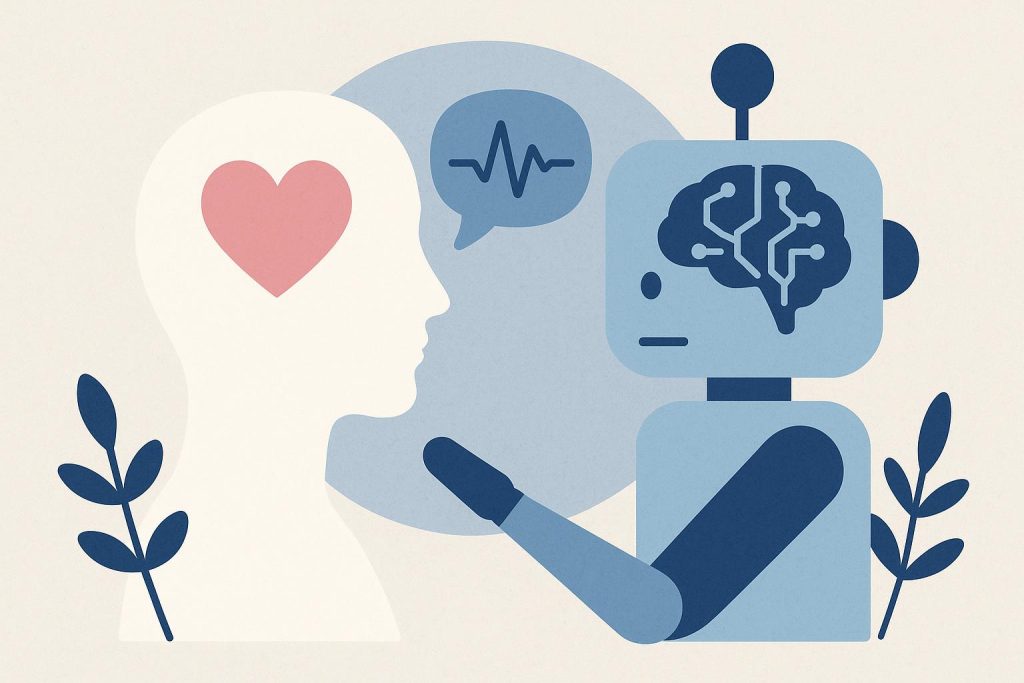AI solutions for therapy have become one of the most widely discussed developments in modern mental health care. Today this term describes a broad category of digital tools that enhance, support, and expand traditional therapeutic methods—not a single product or technology. As the demand for flexible, accessible mental health support grows, AI-powered platforms are becoming valuable allies for both clients and clinicians.
Expanding Access to Mental Health Support
One of the most significant advantages of using an AI solution for therapy is increased accessibility. Traditional therapy, despite its effectiveness, is often limited by geography, cost, or scheduling difficulties. Many people live far from qualified specialists or cannot consistently attend in-person sessions.
AI tools help close this gap by offering support anytime and anywhere. Users can complete guided check-ins, track their mood, or receive conversational assistance through their phone or laptop—typically at a fraction of the cost of traditional care.
Importantly, these tools do not replace professional therapy. Instead, they create an additional layer of support. Many individuals find it easier to express feelings to an AI assistant in moments of stress or overwhelm, using it as a stepping stone before reaching out to a human clinician. This “always-on” availability is one reason AI platforms are increasingly becoming part of people’s daily mental-wellness routines.
Supporting and Enhancing the Work of Therapists
AI solutions for therapy also bring meaningful benefits to clinicians. They help monitor client progress, streamline administrative tasks, and offer supportive guidance between sessions—all without replacing the therapist’s expertise.
For example, AI can help clients record their thoughts, behaviors, and emotional triggers in real time. Therapists then receive this information in a structured, easy-to-review format, allowing them to identify patterns and guide sessions more effectively. This leads to deeper conversations and more personalized therapeutic strategies.
Many tools also provide evidence-based cognitive-behavioral prompts, helping users practice mood regulation or reframing negative thoughts. Over time, these small but consistent exercises can significantly improve treatment outcomes.
Personalized, Adaptive Emotional Support
Despite the stereotype that technology feels impersonal, modern AI systems can adapt remarkably well. A well-designed AI solution for therapy adjusts its tone, recommendations, and communication style based on individual preferences. Over time, it learns how a person expresses emotions and what type of support they respond to.
Some platforms focus on journaling and emotional check-ins, while others guide users through mindfulness practices or structured therapeutic exercises. This flexibility allows individuals to choose the kind of support that best fits their needs and emotional landscape.
Reducing Stigma and Encouraging First Steps Toward Help
Starting therapy can feel intimidating. Stigma, fear of judgment, and cultural expectations often prevent people from seeking help. Here, AI tools serve as a private, judgment-free space where users can express themselves openly.
This anonymity allows individuals who may not yet be ready for formal therapy to still reflect on their emotional experiences. As they build confidence, many eventually feel more prepared to reach out to a human therapist.
Consistent, Real-Time Guidance
Therapeutic growth doesn’t happen only during scheduled appointments—it unfolds in daily habits, emotional fluctuations, and unexpected challenges. AI solutions for therapy provide stability by offering real-time support throughout the day.
These tools can prompt users to check in, journal, meditate, or practice guided breathing. Whether someone is experiencing late-night anxiety or midday frustration, AI can deliver grounding techniques within seconds. This consistency helps make therapeutic practices more practical and sustainable.
Ethical Considerations and the Role of Human Oversight
As interest in AI-powered mental health tools grows, ethical considerations remain essential. Transparency, data protection, and clear boundaries between clinical advice and supportive guidance are critical. Reputable platforms clearly differentiate between AI support and professional therapy, encouraging users to seek human help during crises or complex situations.
The most effective approach combines the expertise of licensed therapists with the day-to-day support of AI tools. When used responsibly, this hybrid model strengthens the overall quality of mental health care.
A Powerful Addition to Modern Wellness
The importance of accessible, flexible emotional support continues to rise. AI solutions for therapy represent a major step toward more modern, comprehensive care. These tools are not designed to replace human connection but to enhance it—helping people manage stress, build emotional resilience, and develop greater self-awareness.
Conclusion
AI-powered mental health tools are reshaping the future of emotional well-being by making support more accessible, personalized, and consistent. When used thoughtfully, an AI solution for therapy becomes a meaningful companion on the path to better mental health—while reinforcing, not diminishing, the essential role of human therapists.
As these technologies continue to evolve, they have the potential to transform how we understand, discuss, and access mental health support in the years ahead.




